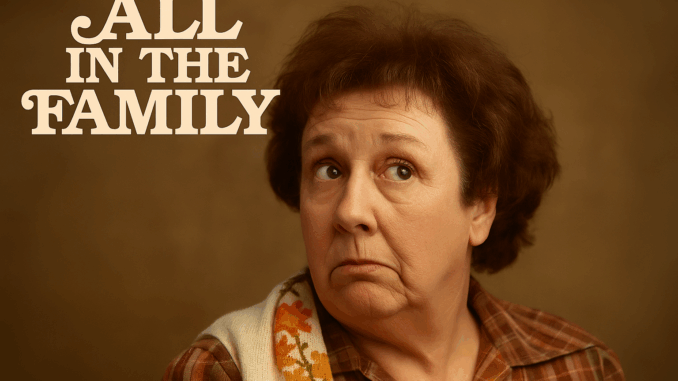
Jean Stapleton, beloved as Edith Bunker in All in the Family, secretly resented her role. After her husband’s passing, she shocked fans by choosing to remain single forever.
Why Jean Stapleton Secretly Hated Playing Edith Bunker
Jean Stapleton became a household name in the 1970s for her portrayal of Edith Bunker in All in the Family. The sitcom broke barriers with its raw, unfiltered look at American family life, and Edith was often the emotional center of the show. But behind the scenes, Stapleton was far less fond of her character than fans might have imagined.
While audiences adored Edith’s soft-spoken, submissive nature, Stapleton saw her as limited. The actress admitted that Edith’s constant deference to Archie Bunker, her loud and overbearing husband, didn’t reflect the kind of strong, independent woman she believed women could and should be. Over time, she grew tired of being typecast and longed to break free from the character that had made her famous.
The Unexpected Choice After Her Husband’s Death
Off screen, Stapleton’s personal life also held surprises. She shared a long and devoted marriage with William H. Putch, a respected theater director. But when he passed away in 1983, Stapleton made a life-altering decision: she never remarried.
Many wondered why a woman as warm and admired as Jean Stapleton would choose solitude. Insiders say it was her deep loyalty to her late husband, while others believe her independence mirrored the real woman behind Edith Bunker. In a quiet but powerful way, Stapleton showed that she didn’t need to redefine herself through another marriage—her career, her friendships, and her passions were enough.
A Legacy That Outshines the Role She Resented
Though Stapleton may have disliked aspects of Edith Bunker, her performance left an indelible mark on television history. She won three Emmy Awards for the role, and her portrayal helped All in the Family become one of the most influential sitcoms of all time.
In the end, Jean Stapleton’s life story proves something bigger: sometimes the roles we resent are the ones that shape our legacy. And sometimes the choices we make in solitude are the ones that define our strength.